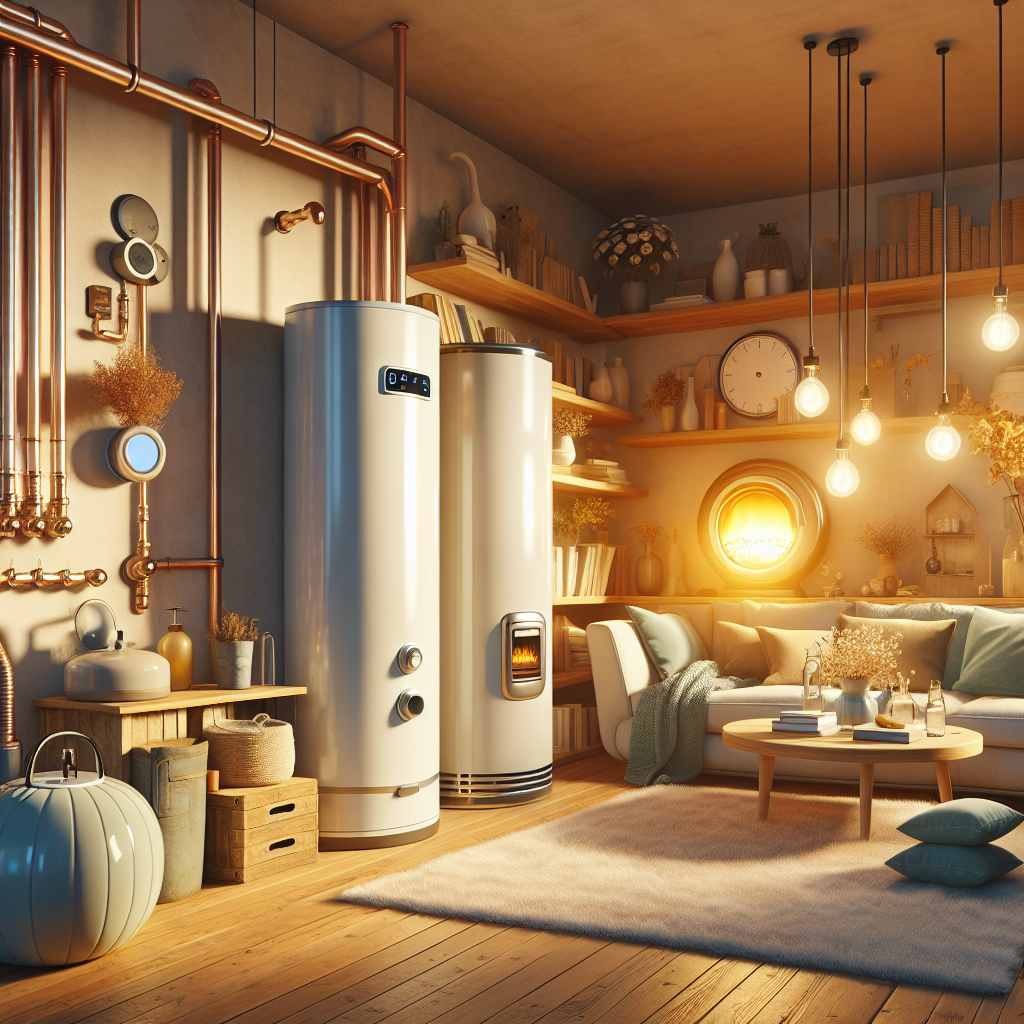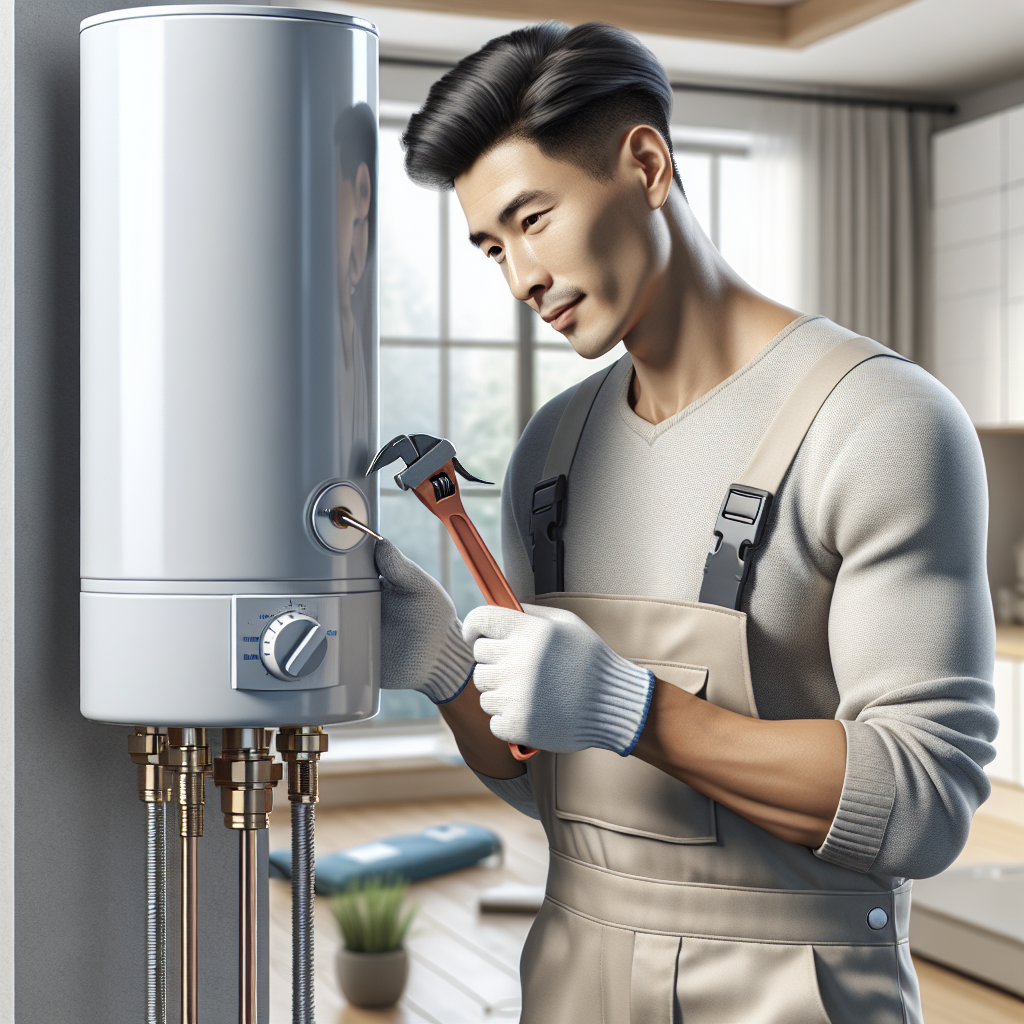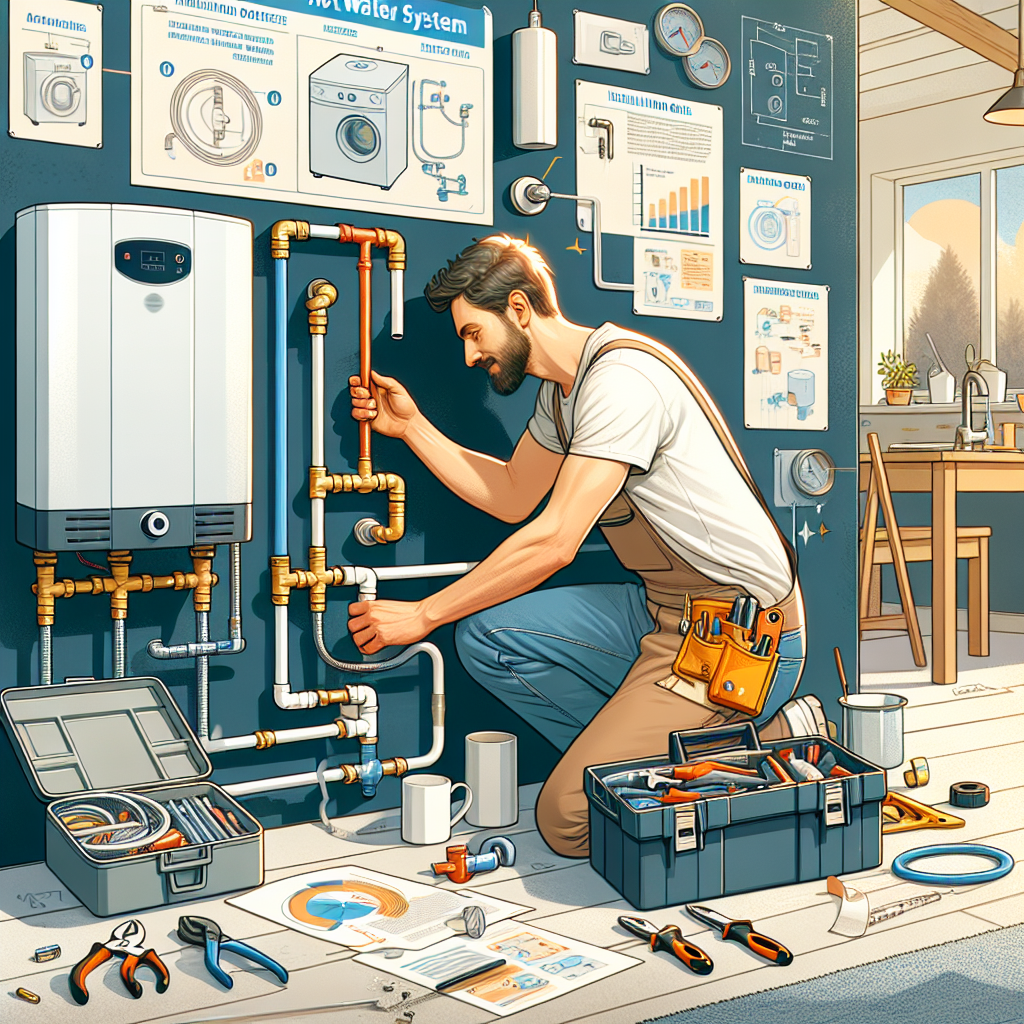The Complete Guide to Hot Water System Installation: What You Need to Know
Introduction
Welcome to the ultimate guide on hot water installation! Whether you’re a homeowner looking to upgrade your system or a business owner in need of reliable hot water solutions, you’ve landed in the right spot. Hot water isn’t just a luxury; it’s a necessity that keeps our showers warm, our dishes clean, and our clothes fresh. And let’s be honest who enjoys a cold shower?
In this guide, we’ll dive deep into the world of hot water heater installation. From understanding different types of systems to navigating the ins and outs of professional hot water installation, we’ve got you covered. We’ll explore everything from electric water heater installation to the trendy and efficient tankless water heater installation. Plus, we’ll share tips on how to avoid common pitfalls and ensure your new system runs like a dream.
Did you know that water heating accounts for about 14% of household energy consumption? That’s right! So, making an informed choice about your hot water system can save you money and energy in the long run. With options ranging from eco-friendly solar-powered systems to high-efficiency gas heaters, there’s something for everyone.
So grab your tool belt (or just your coffee), and let’s get started on this journey toward mastering your hot water system setup!

Understanding Hot Water Systems
Hot water systems are the unsung heroes of our daily routines, quietly ensuring we have steaming showers, warm dishes, and cozy homes. But what exactly are they? In simple terms, a hot water system is any setup designed to heat water for residential or commercial use. Whether you’re washing your hands or running a dishwasher, these systems are crucial for comfort and hygiene.
Types of Hot Water Systems
There are various types of hot water systems to choose from, each with its own perks:
- Storage Tank Systems: The traditional choice that heats and stores water in a tank.
- Tankless Water Heaters: These on-demand systems heat water directly without the need for a storage tank.
- Heat Pump Water Heaters: These use electricity to move heat from one place to another instead of generating heat directly.
- Solar Water Heating: Eco-friendly systems that harness the sun’s energy to heat your water.
- Electric vs. Gas Systems: Electric heaters are often easier to install, while gas heaters can be more cost-effective over time.
The Importance of Hot Water Systems
The significance of hot water systems cannot be overstated. In residential settings, they provide essential services like bathing and cooking. In commercial spaces, they ensure restaurants can serve clean dishes and hotels can offer guests a pleasant stay. The right hot water installation not only enhances comfort but also boosts energy efficiency saving you money on those pesky utility bills!
Did you know? Upgrading to modern hot water systems can improve efficiency by up to 50%, making it a wise investment for both residential and commercial properties!
The Evolution of Hot Water Systems
The landscape of hot water installation has evolved dramatically over the years. Today’s options include smart technology features that allow you to control your system remotely via smartphone apps! Talk about convenience! Plus, with increasing awareness around sustainability, many homeowners are opting for eco-friendly hot water solutions like solar-powered installations.
Mistakes to Avoid When Installing Hot Water Systems
A common pitfall is underestimating the size or capacity needed for your household or business. Choosing an undersized unit can lead to cold showers when you least expect it! Also, don’t overlook the importance of professional installation; attempting a DIY approach might save money upfront but could lead to costly repairs down the line.
If you’re considering upgrading or replacing an old hot water system, it’s best to consult with local hot installers who can provide tailored advice based on your specific needs. Remember: investing in professional hot water installation today means enjoying reliable service for years to come!
Choosing the Right Hot Water Heater
When it comes to hot water installation, choosing the right hot water heater is like picking a partner for a dance: you want someone who complements your style and meets your needs. So, let’s break down the options and find your perfect match!
Tankless vs Traditional Heaters
First up, we have the classic showdown: tankless vs traditional heaters. Traditional heaters store hot water in a tank, which means you have hot water ready to go but can run out if you’re not careful. On the other hand, tankless heaters provide on-demand hot water, meaning you’ll never run out just like that friend who always brings extra snacks to the party!
| Feature | Tankless Heaters | Traditional Heaters |
|---|---|---|
| Hot Water Supply | On-demand | Stored in a tank |
| Energy Efficiency | Higher | Lower |
| Installation Cost | Higher upfront cost | Lower upfront cost |
The Benefits of Energy-Efficient Water Heaters
If you’re looking to save some bucks on your energy bill (and who isn’t?), consider investing in an energy-efficient water heater. These bad boys use less energy to heat your water, which means more cash in your pocket for that vacation you’ve been dreaming about.
Eco-Friendly Hot Water Systems Options
You can also explore eco-friendly hot water systems that use renewable energy sources. Think solar-powered installations! Not only will you be saving the planet, but you’ll also be flaunting a shiny new setup that will make your neighbors green with envy.
The Best Brands for Hot Water Heaters
You don’t want to skimp on quality when it comes to selecting a brand. Some of the best brands for hot water heaters include:
- A.O. Smith – Known for durability and efficiency.
- Bosch – Offers great options for both tank and tankless systems.
- Triton – A rising star in eco-friendly solutions.
- Rheem – A classic choice with reliable performance.
No matter what type of heater you choose, make sure it’s installed by certified professionals. This ensures that you get reliable hot water solutions without any hiccups along the way!
The Hot Water Installation Process
So, you’ve decided to dive into the world of hot water installation. Whether you’re opting for a traditional water heater replacement or going bold with tankless water heater installation, the process can seem daunting. But fear not! We’re here to break it down into digestible steps that even your grandma could follow (with a little help from a licensed plumber, of course).
Preparing for Installation: Site Assessment and Planning
Before any tools come out, you need to get your ducks in a row. This means:
- Assessing your space: Make sure there’s enough room for the new hot water system. This is especially crucial for tankless systems that require specific venting.
- Checking local codes: Different areas have different regulations regarding hot water systems know before you go!
- Choosing the right type: Decide between electric water heater installation or gas options based on your home’s needs and energy sources.
Steps in Installing a Hot Water System
Once the planning is done, it’s time to roll up those sleeves! Here’s a simplified breakdown of the installation process:
- Turn off utilities: Safety first! Ensure all power sources are turned off before starting.
- Drain the old system: If you’re replacing an old unit, drain it completely to avoid any mess.
- Disconnect plumbing and electrical connections: Carefully remove any existing connections. A licensed plumber can help if this feels intimidating.
- Install the new unit: Position your new hot water heater in place and connect it according to manufacturer instructions. For tankless systems, don’t forget about proper venting!
- Reconnect utilities: Hook everything back up and turn on the water supply.
- Test your system: Check for leaks and ensure everything is functioning properly because nobody wants an unexpected indoor waterfall!
Common Challenges During Installation and How to Overcome Them
No installation process is without its hiccups. Here are some common challenges you might face during hot water installation and how to tackle them like a pro:
- Space constraints: If you’re tight on space, consider going with a tankless option or optimizing existing layouts.
- Old plumbing issues: Sometimes older pipes can be a pain. Be prepared for potential replacements or repairs during installation.
- Permitting delays: If local codes require permits, make sure you apply early to avoid delays in your hot water setup timeline.

The average cost of installing a new hot water heater ranges from 0 to ,500 depending on type and complexity of installation. Always consult with certified hot water installers for accurate estimates!
Types of Hot Water Heater Installations
When it comes to hot water installation, there are several options to choose from, each with its unique advantages and installation processes. Let’s dive into the different types of hot water heater installations that you might consider for your home or business!
Electric Water Heater Installation
Electric water heaters are a popular choice for many homeowners due to their efficiency and ease of installation. Here’s what you need to know:
- Power Source: Uses electricity as the heat source.
- Installation Process: Involves connecting the unit to existing electrical systems, often requiring a licensed plumber for safety.
- Advantages: Generally lower upfront costs and no need for venting.
Gas Water Heater Installation
If you’re looking for a reliable option, gas water heaters might be your best bet. They can heat water faster than electric models. Here’s how they stack up:
- Power Source: Utilizes natural gas or propane.
- Installation Process: Requires proper venting and gas line connections, so professional installation is highly recommended.
- Advantages: Typically lower operating costs and quicker heating times compared to electric models.
Tankless Water Heater Installation
Tired of running out of hot water mid-shower? Tankless systems provide on-demand hot water. Here’s the scoop:
- No Storage Tank: Heats water directly without storing it, which means you get unlimited hot water!
- Installation Process: More complex than traditional systems; requires specific sizing and sometimes upgrades to gas lines or electrical systems.
- Advantages: Energy-efficient and space-saving, making them ideal for smaller homes or apartments.
Solar Powered Hot Water Installations
If you’re eco-conscious, solar-powered hot water systems are an exciting option! They harness the sun’s energy for heating. Here’s what to consider:
- Sustainability: Utilizes renewable energy sources, reducing your carbon footprint.
- Installation Process: Involves roof-mounted solar panels and a storage tank; requires specialized knowledge for effective setup.
- Advantages: Long-term savings on energy bills and government incentives may be available!
No matter which type you choose, it’s crucial to consult with local hot water installers who can guide you through the specifics of your installation needs. Each type has its own quirks so don’t hesitate to ask questions!
The Cost of Installing a New Hot Water Heater
So, you’ve decided to take the plunge and install a new hot water heater. Congratulations! But before you dive into the world of hot water installation, let’s talk about the elephant in the room: the cost. Understanding the financial side of hot water heater installation can help you avoid any nasty surprises down the line.
A Breakdown of Costs Involved in Hot Water Installation
The total cost of installing a new hot water heater can vary significantly based on several factors. Here’s a quick breakdown:
- Unit Cost: The price of the actual hot water heater itself can range from 0 for basic models to over ,000 for high-end, energy-efficient models.
- Installation Fees: Professional installation typically costs between 0 and ,000 depending on your location and the complexity of the installation.
- Additional Materials: Don’t forget about plumbing materials, permits, and any potential electrical or gas line upgrades. This can add another 0 to 0 to your total cost.
- Old Unit Removal: If you’re replacing an old hot water system, expect to pay an extra fee for removal and disposal usually around 0 to 0.
Factors Affecting the Cost of Installing a New Hot Water Heater
The cost isn’t just about what type of heater you choose; several other factors come into play:
- Type of Heater: Electric vs gas vs tankless each has its own price point and installation requirements.
- Your Home’s Plumbing Setup: Older homes may require more extensive modifications, which can increase labor costs.
- Your Location: Local labor rates can vary widely. Urban areas often have higher costs compared to rural settings.
- Energy Efficiency Ratings: Higher efficiency models may have a steeper upfront cost but could save you money in energy bills over time.
Pro Tip: Always get multiple quotes from local hot water installers before making your decision. This not only helps you find affordable hot water installation options but also gives you leverage in negotiations!
Affordable Hot Water Installation Options Available Locally
If you’re feeling overwhelmed by costs, don’t fret! Many local plumbing companies offer financing options or special promotions that can help ease your financial burden. Look for certified hot water installers who provide transparent pricing and detailed estimates. You might be surprised at how quickly you can find reliable hot water solutions that fit your budget!
The key takeaway? While the cost of installing a new hot water heater might seem daunting at first glance, understanding what contributes to that price tag will empower you to make informed decisions. Whether you’re opting for electric or gas water heater installation, knowing your options will ensure you’re not left out in the cold (or without hot showers!).
The Importance of Professional Installation Services
When it comes to hot water installation, you might be tempted to roll up your sleeves and channel your inner DIY guru. But before you grab that wrench and start tinkering, let’s talk about why calling in the pros can save you time, money, and a whole lot of headaches.
The Role of Certified Hot Water Installers
First off, certified hot water installers and licensed plumbers are like the superheroes of the plumbing world. They come equipped with the right tools, knowledge, and experience to tackle any installation challenge. Whether you’re looking for electric water heater installation or gas water heater installation, these experts know the ins and outs of every system.
Benefits of Professional Hot Water Installation Services vs DIY Approaches
Sure, a DIY project can feel rewarding like building your own coffee table from scratch or finally assembling that IKEA bookshelf without any leftover parts. However, when it comes to hot water systems, professional installation offers several advantages:
- Safety First: Dealing with gas lines or electrical wiring can be dangerous if you’re not trained. Professionals follow strict safety protocols to ensure everything is installed correctly.
- Efficiency: A licensed plumber will ensure your system runs smoothly from day one. This means fewer repairs down the line and optimal energy efficiency hello savings!
- Warranty Protection: Many manufacturers require professional installation for warranties to be valid. Skipping this step could leave you high and dry if something goes wrong.
- Time-Saving: Let’s face it: You have better things to do than read through manuals and watch tutorial videos for hours. Professionals can typically complete installations faster than most DIYers.
Emergency Hot Water Installation Services: When to Call a Professional?
If you’ve ever found yourself shivering in a cold shower due to an unexpected hot water failure, you know that timing is everything. Here are some scenarios where calling a pro is not just wise but essential:
- Your hot water system suddenly stops working during a chilly winter night.
- You notice strange noises or leaks coming from your hot water heater.
- Your system is over ten years old and showing signs of wear time for a replacement!
- You’re considering upgrading to modern hot water systems but don’t know which option fits your needs best.
Pro Tip: Always choose local hot water installers who understand the specific regulations and requirements in your area!
So there you have it! While DIY might work for some home projects, when it comes to installing hot water systems be it tankless or traditional you’ll want the peace of mind that comes with professional expertise. After all, nobody wants an unexpected ice bath!




Leave A Comment